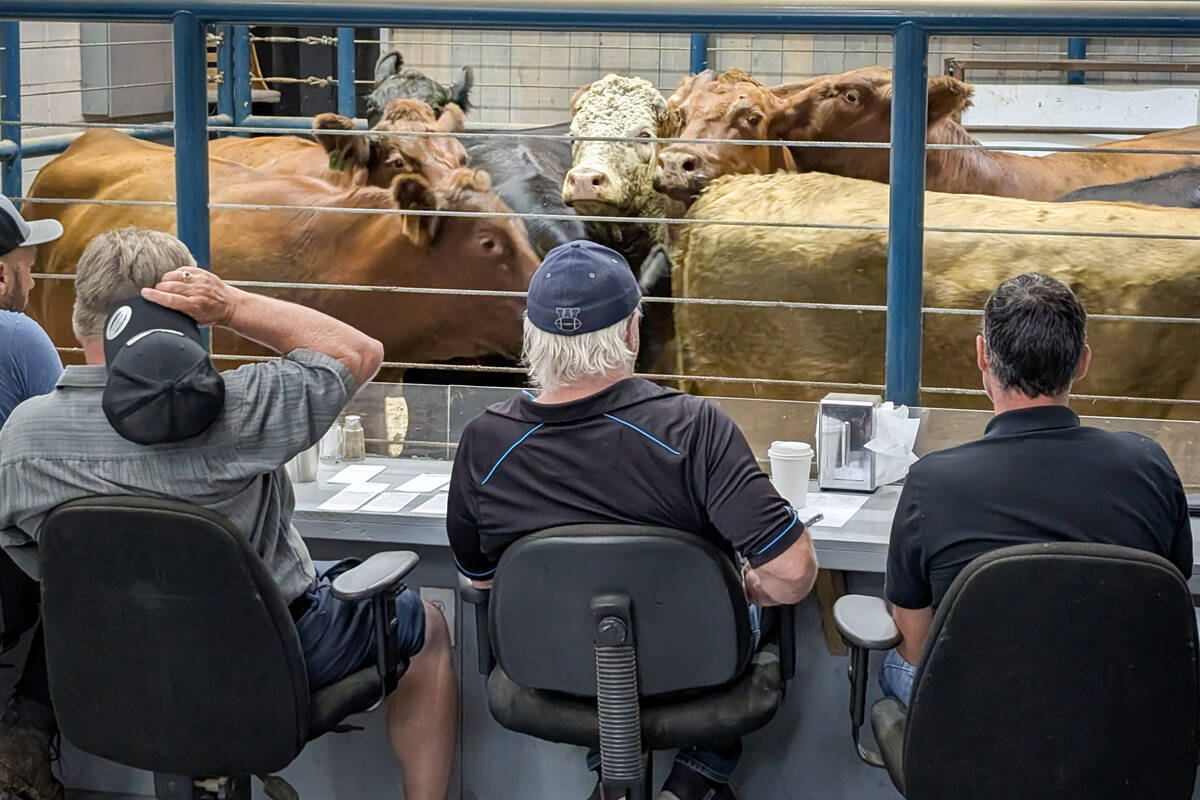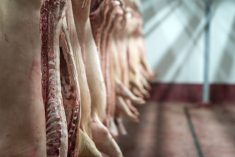Canadian market access to China is expected to improve in the latter half of the year with Chinese officials expected to decide this summer whether or not to approve the use of the hog feed additive commonly marketed under the brand name Paylean, according to an Canadian pork industry official.
“Hopefully by July China will have reached some conclusion on this issue. They are conducting an import risk assessment and until that is done there is not a lot Canada can do except to wait for the results,” said Jacques Pomerleau, executive director for Canada Pork International in Ottawa.
Read Also

Klassen: Weaker fed market weighs on feeder cattle prices
For the week ending November 8, Western Canadian feeder cattle markets traded $10-$20/cwt below values from seven days earlier. Some…
Paylean, which contains ractpopamine hydrochloride, improves the quality of meat cuts by directing nutrients away from fat deposition and toward lean deposition, thus increasing the amount of lean pork and high-value meat cuts in the carcass. It also increases production as lean is more efficient to produce than fat, meaning that pigs fed Paylean reach market weight in fewer days with less feed.
Paylean has been approved for use in 30 countries, including Canada and the U.S., but China has yet to give its approval for the use of the feed additive. The drug has been banned there since 2002.
In fact, its current zero-tolerance policy toward the additive resulted in several North American processing plants being delisted when their pork products were found to contain traces of it. Among the delisted plants are two Canadian companies, one of which is Maple Leaf’s Brandon plant. Industry sources did not wish to name the second plant.
Canadian pork sales to China, in the meantime, have suffered considerably.
Martin Rice, executive director with the Canadian Pork Council (CPC) in Ottawa, said 18,000 tons of pork have been shipped to China and Hong Kong (viewed as a single market) in the first two months of 2008, an increase from the previous year’s amount. The majority however, went to Hong Kong, whereas last year the bulk of the pork was shipped to mainland China. Exports to mainland China alone have declined roughly 30 per cent, Rice said, whereas in recent years exports had climbed steadily.
The main reason for the decline, he said, was the Paylean ban.
While less than half of the Canadian pork industry is believed to be using Paylean, the problem is augmented by the fact there are no records definitively showing who is and who is not using the feed additive, Rice explained.
Also, the plants which could reasonably guarantee Paylean-free pork because they own their own hogs, are not increasing their sales to China because they are not offered a price premium that would offset the costs incurred as a result of segregating pigs destined for that market from pigs fed Paylean, Rice said.
“Tyson Foods, for example, declined to discuss with China any further export shipments because they weren’t really offering any kind of premium that would make it worth their while to go through the bother of separating their pigs and all that,” he said.
Furthermore, plants may be unwilling to forego the considerable returns (C$2 to $3 per pig) that can result from Paylean use.
The Chinese market price for pork would have to increase in order to provide enough of an incentive to the plant, Rice said.
Pomerleau, meanwhile, is optimistic China will eventually allow the use of Paylean.
“I think we can be hopeful about the situation. There are new people in place in China and there is a new approach so I’m quite optimistic but these things take time. Some things just have to play themselves out and people have to do what they think is best,” he said
In the event of a favourable outcome, Pomerleau believes there is excellent opportunity for Canada to increase its pork sales to China. Their pork supply is low this year and as incomes rise and the middle class expands, more Chinese households will have greater disposable income, he explained.
“The opportunities are there. If it weren’t for the Paylean issue, we would be exporting a lot right now,” Pomerleau said.
Rice also believes there will be increased opportunities in the coming years for Canadian exporters to sell higher-quality skeletal meat cuts to China, which currently buys mainly organs such as kidneys or stomachs. He noted that demand for value-added fresh, packaged pork products is growing as well.












